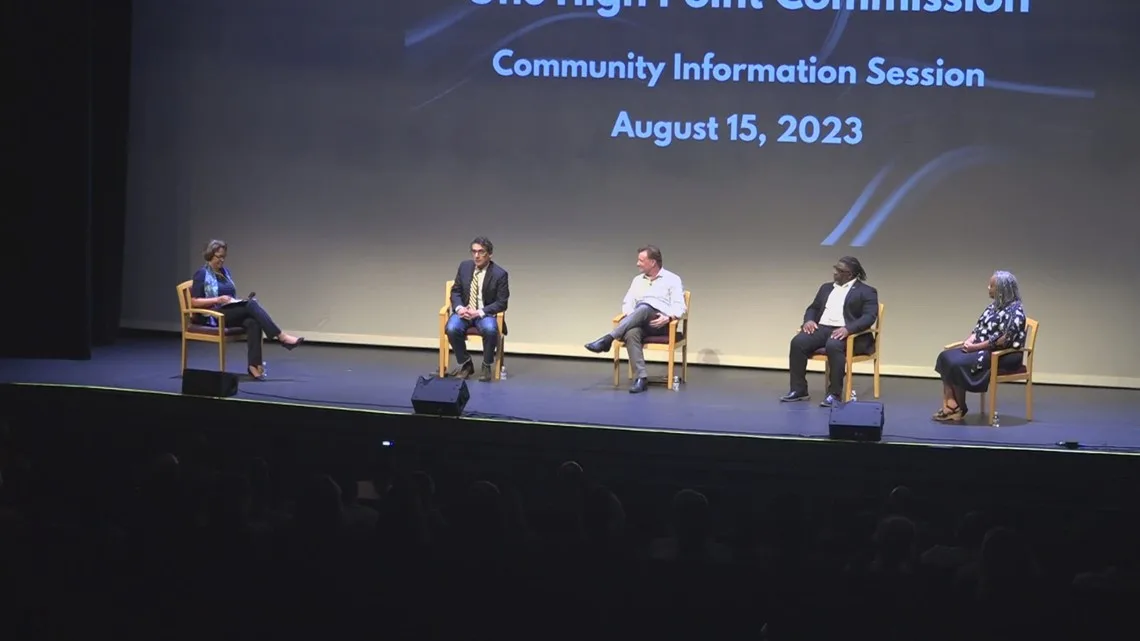
The 13-member commission spent a year creating a plan for reparations for the African American community.
HIGH POINT, N.C. — For the past year, a group in High Point has been researching the history in the black community to recommend reparations they hope will lead to a more prosperous city.
When you hear the term reparations, you probably think about money, but that’s not what the One High Point Commission wants.
They want to put restorative policies in place that focus on things like education, transportation and housing.
“From the 1870s to 1920s there were thriving black communities in this area, said Dr. Stephen Sills a member of the One High Point Commission. “People purchased land, built homes and what restorative economic policies do is bring us back to that point.”
That’s the idea behind the suggested changes by the One High Point Commission. They took a deep dive into High Point’s history and shared how changes in policy could create a lasting impact.
“We have to deal with the history of our city that impacts how we live today,” said High Point city councilman Michael Holmes. “We have to look back at policies that are going to hinder the city’s growth.”
Holmes is one of 13 people on the commission tasked with creating a plan for reparations for the African American community.
Folks who attended Tuesday’s info session at the High Point Theater got to learn about the four focus areas they hope will close the socio-economic gap.
” Zipcode 27260 is the most food insecure and the second poorest in North Carolina,” Holmes said. “So looking at food corps to address food desserts in the city.”
The plan also includes housing like a loan pool for home ownership, renovating schools in historically black neighborhoods to address education gaps and improving transportation.
“To be able to have transportation to get to interviews and be able to get jobs and not have to worry about how am I going to get to work each day,” said long-time High Point resident Iris Hale.
Hale has lived in High Point most of her life and said she’s seen the disparities firsthand, but she said learning about the commission’s plan gives her hope.
” I’m glad we’re opening up and taking in people’s perspective and trying to do something about it to make it a better place,” Hale said.
Holmes was very open about his encounters with racism that impact how he raises his children today.
“I push them to be better because they’re not going to be valued and I hope that changes,” Holmes said.
That’s why he’s pushing council to approve their recommendations, for his children and future generations.
A breakdown of the restorative policies can be found here.
City council will vote on the recommendations at its meeting on Sept. 18.


